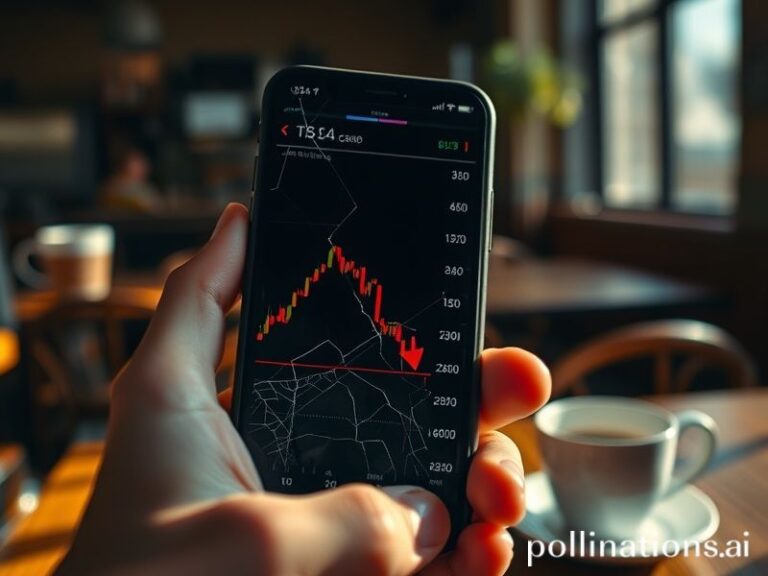Global Echoes: How ‘Sounders’ Became the Loudest Quiet Threat on (and under) Earth
The Curious Case of the World’s Loudest Whisperers
A dispatch from the international noise floor
They began as a humble American soccer club, the Seattle Sounders, but—like most things American—they refused to stay in their lane. Now, from Dakar to Dubai, the term “sounders” is being co-opted, repurposed, and weaponized by an odd alliance of data brokers, submarine captains, hedge-fund mystics, and TikTok prophets. In 2024, a “sounder” is no longer just a green-haired ultra screaming at a referee; it is any networked node that pings the depths for information and surfaces with something profitable—or catastrophic.
The Atlantic recently reported that U.S. Navy “sounders” (low-frequency active sonar arrays) are now so loud they can be heard by whales off the coast of Portugal. The Portuguese, never ones to waste a good catastrophe, have begun marketing whale-watch tours as “front-row seats to the end of marine privacy.” Tickets sell out in minutes. Meanwhile, Chinese fishing fleets—technically “research vessels,” because euphemism is the first language of diplomacy—run their own clandestine sounders, mapping seabeds the way teenagers map each other’s Instagram grids: obsessively and without consent.
Across the Baltic, Swedish defense analysts discovered Russian underwater drones nicknamed “Zvuki”—literally “sounds”—slipping through fiber-optic corridors like teenagers sneaking into a cinema. NATO’s response? A €2 billion program to build even louder sounders that will, supposedly, “deter by deafening.” Somewhere in Brussels a PowerPoint slide reads: “If you can’t beat them, tinnitus them.”
The private sector, never one to let a good arms race go unfunded, has joined the chorus. Venture-backed start-ups now sell subscription “sounders” to commodity traders: shoebox-sized buoys that eavesdrop on tanker propellers and cough up real-time oil-flow data faster than OPEC can delete its tweets. In Singapore, a former DJ turned “marine acoustics influencer” livestreams hydrophone feeds under the brand DeepBassDrop. Viewers pay $9.99 a month to feel part of the global pulse. The tagline: “Dance to the rhythm of geopolitics.”
Even humanitarian agencies have boarded the echo chamber. Médecins Sans Frontières recently deployed passive sounders off Libya to triangulate migrant vessels before they sink. The devices work; the politics don’t. European navies, caught between electoral panic and maritime law, now play an annual game of sub-aquatic chicken—turning their sounders on just long enough to locate, then “lose,” the dinghies. A German admiral, when pressed, called it “acoustic Schrödinger: the refugees are simultaneously rescued and not.”
But the most surreal iteration comes from the Gulf, where Saudi Arabia’s NEOM project advertises “ambient sound zones” where citizens’ wearables will act as personal sounders, constantly pinging for mood data. Too much bass in your heartbeat? The city’s AI will pipe calming Gregorian chants into your smart villa. Not dystopian at all—just a gentle, omniscient lullaby sung by the Panopticon Choir.
And so we arrive at the meta-sounder: humanity itself, a species that can’t help but ping the universe to see if anyone, or anything, pings back. We send sonar into the abyss, satellites into the void, tweets into timelines—all the same anxious tap on the cosmic shoulder: “Are you there? Do you like me? Will you trade crude futures?” The feedback loop grows louder, the oceans fuller of plastic and white noise, the markets more jittery with each reverberation.
Which brings us, inevitably, to the Seattle Sounders. Last month the club announced a jersey patch sponsored by a Seattle-based hydro-acoustics firm whose primary client is the U.S. Navy. The fans cheered, blissfully unaware that their beloved Rave Green had become a floating billboard for the militarization of whalesong. Somewhere a marketing executive updated his KPIs: “Brand engagement up 12 percent; cetacean collateral damage classified.”
Conclusion (because even cynicism needs punctuation): Whether you’re a whale, a refugee, or merely a commuter wearing noise-canceling headphones, you now live in a world where every surface is a diaphragm, every silence a missed revenue stream. The sounders are listening, and—spoiler alert—we’re all the echo. So speak clearly, encrypt generously, and maybe invest in earplugs. After all, the next ping you hear might just be your own data, returning home with souvenirs.







